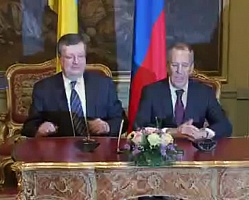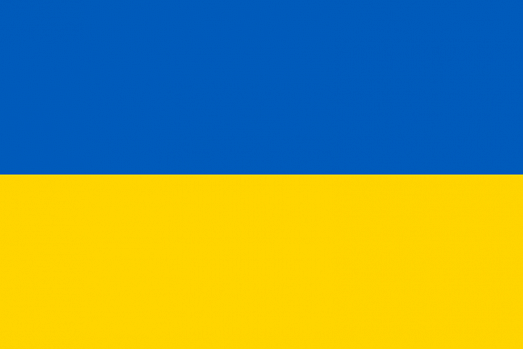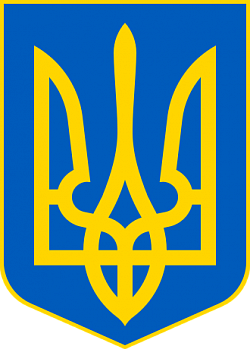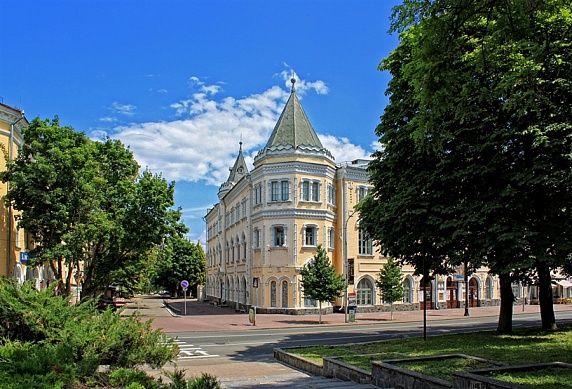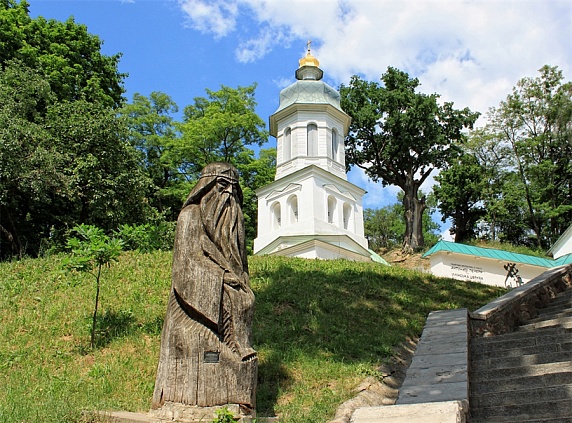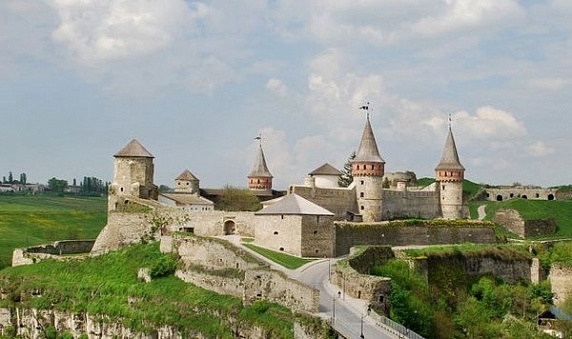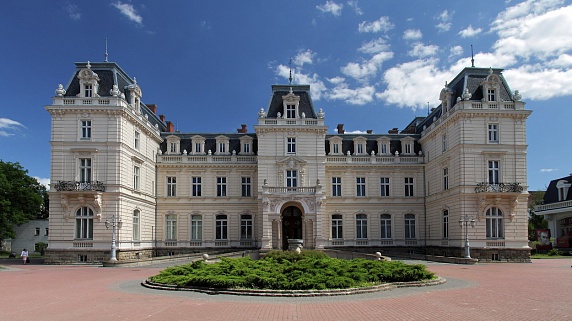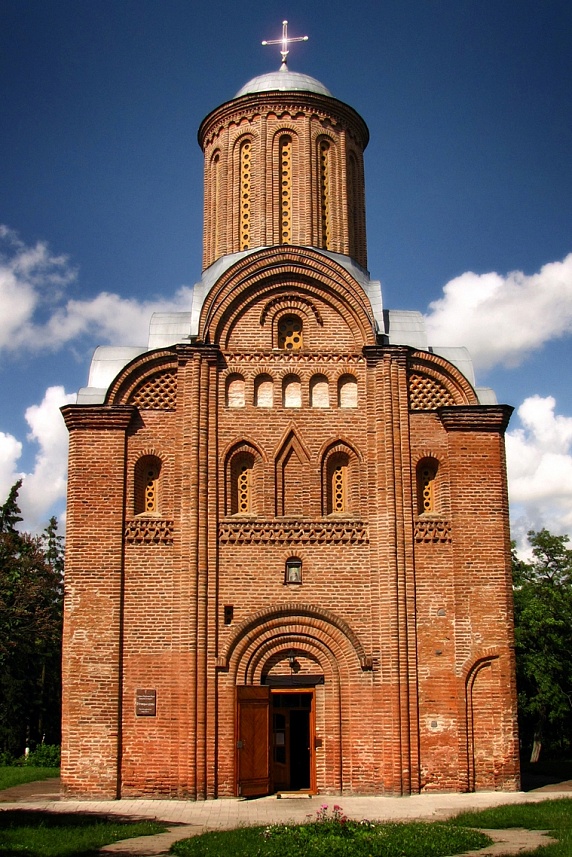 Ukraine
Ukraine
Transcript of Remarks and Response to Media Questions by Russian Minister of Foreign Affairs Sergey Lavrov Following Talks with Ukrainian Minister of Foreign Affairs Kostyantyn Hryshchenko, Moscow, March 16, 2010
Esteemed colleagues,
Today we signed a Plan of Interaction between the Ministries of Foreign Affairs of Russia and Ukraine for the year 2010. It outlines the principal activities to be carried out this year by our agencies in order to fulfill the instructions of the Presidents of the Russian Federation and Ukraine given on the basis of their meetings in Moscow on March 5 as part of the official visit of Viktor Yanukovych to Russia. These instructions were formulated with the utmost clarity. Their essence is the necessity to revive and increase the effectiveness of all the mechanisms of Russian-Ukrainian interaction, including the mechanisms which for reasons beyond our control were not very actively used recently.
Above all, it is about the preparation of the third meeting of the Russian-Ukrainian Interstate Commission under the leadership of the two presidents. The Commission has acquitted itself well as a body that can examine and decide on all issues in our relations. This concerns the economy, humanitarian cooperation and the international aspects of our cooperation. Today we agreed on a schedule of meetings between the representatives of the entities that must ensure a productive meeting of the Interstate Commission, which we agreed to combine with the visit of Russian President Dmitry Medvedev to Kyiv.
We are facing some complicated tasks. We want to catch up on what we have missed in recent years and to do so that all our agencies, all the entities attached to the presidential administrations and security councils, and, what Hryshchenko and I particularly emphasized today, our border regions and then also the other regions which have established ties between themselves and are interested in their development – that all these mechanisms, all these formats are made use of in full.
As to our two ministries, the Plan signed today enables us to hope that our colleagues, our staffs, our deputies, and our directors of departments will have a clear schedule of activities. But as to their content, there is something to work on here. Ukraine and we have a common interest in issues of European security, international cooperation on key problems, and conflict resolution, including in the CIS space. We firmly intend to advance on all these fronts as fast and as productively as possible.
Question: How true is the information that the President of Ukraine has suggested that a new SOA treaty be signed in Kyiv? Will the Russian side agree with this and on what date?
Foreign Minister Lavrov: As regards the Russian Federation, we would be glad to sign the treaty between Russia and the United States in Kyiv. We value the position which Ukraine took together with Kazakhstan and Belarus immediately after the disintegration of the USSR on the renunciation of nuclear weapons. You know that during the Soviet period nuclear weapons were stationed on the territory of Russia, Ukraine, Kazakhstan and Belarus. The decisions taken by the leaders of these countries to accede to the Treaty on the Nonproliferation of Nuclear Weapons as nonnuclear weapon states under the appropriate security guarantees were highly evaluated by the world community. I can say that in the context of the preparation of the new treaty between Russia and the United States, these guarantees will be fully confirmed and we would, I can again stress it, feel comfortable to sign this treaty in the capital of Ukraine. As to the concrete decision on the venue for signing the treaty, it will be taken by the presidents of the Russian Federation and the United States of America, proceeding, of course, from the possibility to compare their schedules and find a suitable time and place where it would be convenient for them to do that. So the decision is up to the Russian and US presidents.
Question: How can you comment on the situation that has evolved around the Finnish boy Robert Rantala?
Foreign Minister Lavrov: I can only stress the necessity to work out systemic decisions in this kind of questions. Undoubtedly, the situation itself requires particular, special attention. This is what the Russian embassy in Finland is doing, as well as our ministry and the Russian Federation's commissioner for children's rights, Pavel Astakhov, who is currently in Helsinki and is holding the appropriate meetings. I hope that we will solve this situation, first and foremost in the interests of the child himself. This is what I agreed with Finnish Foreign Minister Alexander Stubb, with whom this question was discussed quite pointedly during his recent visit to Moscow.
Again, I am convinced of the necessity to work out systemic decisions of special bodies on mutual legal assistance in family and civil matters, on matters connected with adoption, mixed marriages, and children from mixed marriages. This issue concerns our relations not only with Finland, but also with such a country as the United States and then also with other countries. We are very much concerned how the fate of adopted Russian children develops in a whole array of countries, especially the United States, where 17 children from Russia have been brought to death, one way or another. I do not want to use another word. They died in their adoptive families.
So that as we do everything necessary to resolve this concrete situation with Robert Rantala, primarily in his interests and with regard for the interests of his parents, we will be seeking in relations with our partners, who show activeness in questions of the adoption of Russian children and with those who some way or other experience together with us problems with the children born in mixed marriages, when the marriage later disintegrates – to conclude the appropriate intergovernmental agreements.
Question: Boris Gryzlov has said that the State Duma will not ratify the SOA treaty unless it has a link with missile defense. What kind of American response may there be and what progress has been made in the negotiations with the US to ensure that the link is there?
Foreign Minister Lavrov: I would advise you not to worry. The link will be there. It will be legally confirmed. So a problem will not arise.
Question: Apart from the development of Ukrainian television broadcasting in the Russian and Ukrainian languages on the territories of Ukraine and Russia, which was recently talked about in the Kremlin at the meeting between the two presidents, will there be support from the Russian Federation for federal Ukrainian diaspora publications. Now they practically do not work because of lack of funding.
Foreign Minister Lavrov: As President of the Russian Federation Dmitry Medvedev has announced, we are now working out the practical aspects that will enable realizing the broadcasting on the territory of Russia of the television channels of all CIS states and, of course, Ukrainian television channels will be in greatest demand, because there are quite a few of those in Russia who would like to preserve their connection with Ukrainian culture. These decisions will be taken in a maximally privileged mode. Our partners will soon be informed of the financial and technical aspects of these proposals. I expect that they will not be burdensome.
March 17, 2010
